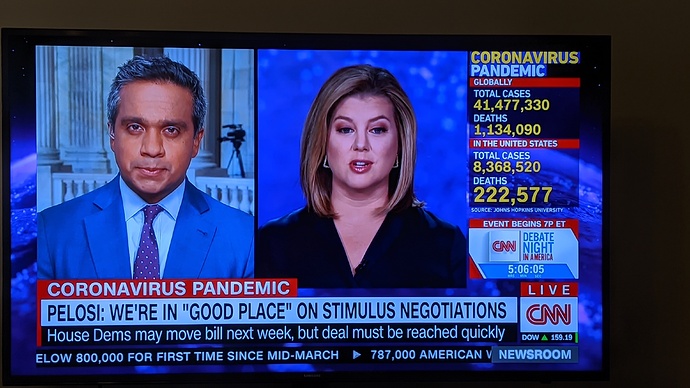Larraine didn’t put anything on layaway that day. But when her food stamps kicked in, she went to the grocery store and bought two lobster tails, shrimp, king crab legs, salad, and lemon meringue pie. Bringing it all back to Beaker’s trailer, she added Cajun seasoning to the crab legs and cooked the lobster tails in lemon butter at 350 degrees. She ate everything alone, in a single sitting, washing it down with Pepsi. The meal consumed her entire monthly allocation of food stamps. It was her and Glen’s anniversary, and she wanted to do something special. “I know our relationship may not have been good, but it was our relationship,” she said. “Some things I will not ever get over.” But the lobster helped.
—
When Larraine spent money or food stamps on nonessentials, it baffled and frustrated people around her, including her niece, Sammy, Susan and Lane’s daughter. “My aunt Larraine is one of those people who will see some two-hundred-dollar beauty cream that removes her wrinkles and will go and buy it instead of paying the rent,” said Sammy, a hairstylist with her own shop in Cudahy. “I don’t know why she just doesn’t stick to a budget.” Pastor Daryl felt the same way, saying that Larraine was careless with her money because she operated under a “poverty mentality.”
To Sammy, Pastor Daryl, and others, Larraine was poor because she threw money away. But the reverse was more true. Larraine threw money away because she was poor.
Before she was evicted, Larraine had $164 left over after paying the rent. She could have put some of that away, shunning cable and Walmart. If Larraine somehow managed to save $50 a month, nearly one-third of her after-rent income, by the end of the year she would have $600 to show for it—enough to cover a single month’s rent. And that would have come at considerable sacrifice, since she would sometimes have had to forgo things like hot water and clothes. Larraine could have at least saved what she spent on cable. But to an older woman who lived in a trailer park isolated from the rest of the city, who had no car, who didn’t know how to use the Internet, who only sometimes had a phone, who no longer worked, and who sometimes was seized with fibromyalgia attacks and cluster migraines—cable was a valued friend.
People like Larraine lived with so many compounded limitations that it was difficult to imagine the amount of good behavior or self-control that would allow them to lift themselves out of poverty. The distance between grinding poverty and even stable poverty could be so vast that those at the bottom had little hope of climbing out even if they pinched every penny. So they chose not to. Instead, they tried to survive in color, to season the suffering with pleasure. They would get a little high or have a drink or do a bit of gambling or acquire a television. They might buy lobster on food stamps.
If Larraine spent her money unwisely, it was not because her benefits left her with so much but because they left her with so little. She paid the price for her lobster dinner. She had to eat pantry food the rest of the month. Some days, she simply went hungry. It was worth it. “I’m satisfied with what I had,” she said. “And I’m willing to eat noodles for the rest of the month because of it.”
Larraine learned a long time ago not to apologize for her existence. “People will begrudge you for anything,” she said. She didn’t care that the checkout clerk looked at her funny. She got the same looks when she bought the $14 tart balsamic vinegar or ribs or on-sale steak or chicken. Larraine loved to cook. “I have a right to live, and I have a right to live like I want to live,” she said. “People don’t realize that even poor people get tired of the same old taste. Like, I literally hate hot dogs, but I was brought up on them. So you think, ‘When I get older, I will have steak.’ So now I’m older. And I do.”

